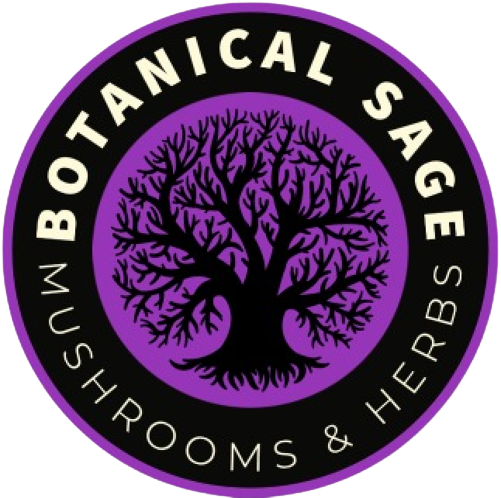Botanical Sage
Cinnamon Bark Pieces
Cinnamon Bark Pieces
Couldn't load pickup availability
Cinnamon bark, derived from the Cinnamomum verum or Cinnamomum cassia tree, has been used for its medicinal properties for centuries. Here are some of the medicinal uses and health benefits associated with cinnamon bark:
-
Blood Sugar Regulation: Cinnamon bark contains compounds that can help lower blood sugar levels by improving insulin sensitivity and slowing down the breakdown of carbohydrates in the digestive tract. This makes it beneficial for individuals with diabetes or those at risk of developing diabetes.
-
Antioxidant Effects: Cinnamon bark is rich in antioxidants, including polyphenols and flavonoids, which help protect cells from damage caused by free radicals. Antioxidants can reduce inflammation, prevent oxidative stress, and lower the risk of chronic diseases.
-
Anti-inflammatory Properties: Cinnamon bark contains compounds with anti-inflammatory effects, which can help reduce inflammation in the body. This may be beneficial for conditions such as arthritis, inflammatory bowel disease, and other inflammatory conditions.
-
Heart Health: Cinnamon bark may help improve heart health by lowering cholesterol levels, reducing blood pressure, and improving circulation. It can also help prevent the buildup of plaque in the arteries, reducing the risk of heart disease and stroke.
-
Antimicrobial Effects: Cinnamon bark has antimicrobial properties that can help fight off bacteria, viruses, and fungi. It has been used traditionally to treat infections, including respiratory infections, gastrointestinal infections, and urinary tract infections.
-
Digestive Health: Cinnamon bark can aid digestion by stimulating the production of digestive enzymes and reducing gas, bloating, and indigestion. It can also help soothe stomach ulcers and improve overall gut health.
-
Brain Health: Some studies suggest that cinnamon bark may have neuroprotective effects and help improve cognitive function. It may also help protect against age-related cognitive decline and reduce the risk of neurodegenerative diseases like Alzheimer's disease.
-
Anti-cancer Properties: Preliminary research suggests that cinnamon bark may have anti-cancer properties, including the ability to inhibit the growth and spread of cancer cells. More studies are needed to fully understand its potential in cancer prevention and treatment.
-
Weight Management: Cinnamon bark may help support weight loss by increasing metabolism, reducing appetite, and improving insulin sensitivity. Including cinnamon in your diet can help regulate blood sugar levels and prevent cravings for sugary foods.
Forms and Usage
- Ground Cinnamon: Ground cinnamon is the most common form and can be added to foods and beverages such as oatmeal, yogurt, tea, and smoothies.
- Cinnamon Sticks: Cinnamon sticks can be used to flavor hot beverages like tea and coffee, or they can be simmered in soups, stews, and sauces for added flavor.
- Cinnamon Extract: Cinnamon extract is a concentrated form of cinnamon that can be taken as a supplement. Follow the dosage instructions on the product label or consult with a healthcare professional.
- Cinnamon Tea: Cinnamon tea can be made by steeping cinnamon sticks or ground cinnamon in hot water. This can be consumed as a soothing beverage with potential health benefits.
Precautions and Side Effects
- Cassia vs. Ceylon Cinnamon: It's important to note that there are two main types of cinnamon, cassia and Ceylon. Cassia cinnamon contains higher levels of coumarin, which may be toxic in large doses. Ceylon cinnamon is lower in coumarin and considered safer for regular consumption.
- Allergic Reactions: Some individuals may be allergic to cinnamon and may experience symptoms such as itching, swelling, and difficulty breathing. Discontinue use and seek medical attention if allergic reactions occur.
- Blood Sugar Monitoring: If you have diabetes or are taking medications to lower blood sugar, monitor your blood sugar levels closely when consuming cinnamon, as it may interact with these medications and cause hypoglycemia.
- Liver Health: Consuming large amounts of cassia cinnamon, which contains higher levels of coumarin, may be harmful to the liver. Stick to recommended doses and choose Ceylon cinnamon if possible.
Conclusion
Cinnamon bark offers a wide range of medicinal benefits, including blood sugar regulation, antioxidant effects, anti-inflammatory properties, and heart health support. Incorporating cinnamon into your diet can be a flavorful way to promote overall health and well-being. As with any herbal remedy, it's important to use cinnamon appropriately and choose the right type of cinnamon to avoid potential side effects. Consult with a healthcare professional if you have any underlying health conditions or concerns about using cinnamon medicinally.


